[Newsbits] 15-29.08.2024: Pacific Islands Forum (PIF), Whitetopping Technology & More
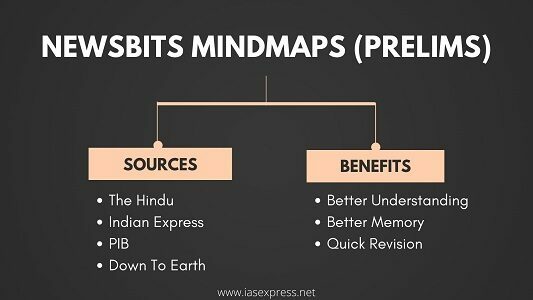
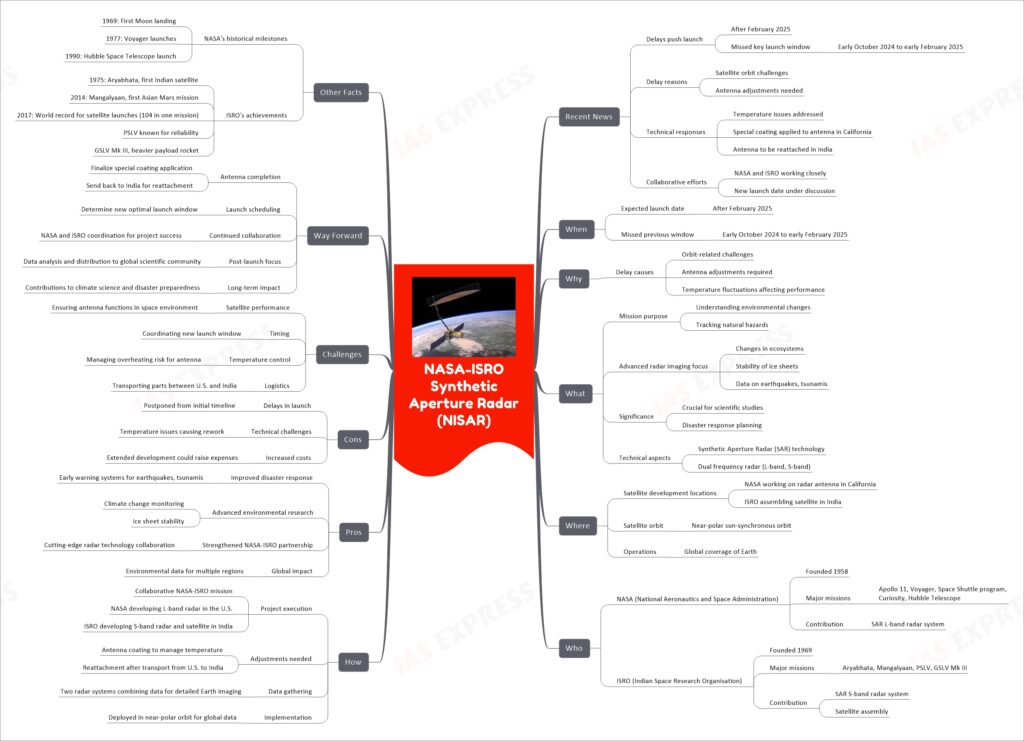
The NASA-ISRO Synthetic Aperture Radar (NISAR) mission is a collaborative effort between NASA and ISRO, aiming to monitor environmental changes and natural hazards through advanced radar technology. Despite recent delays, mainly due to satellite orbit issues and necessary antenna adjustments, the mission remains highly significant for global climate research and disaster management. The radar will track changes in ecosystems, ice sheet stability, and provide crucial data for natural disasters like earthquakes and tsunamis. Efforts continue to finalize antenna adjustments and set a new launch date after February 2025, highlighting the strong partnership between NASA and ISRO.
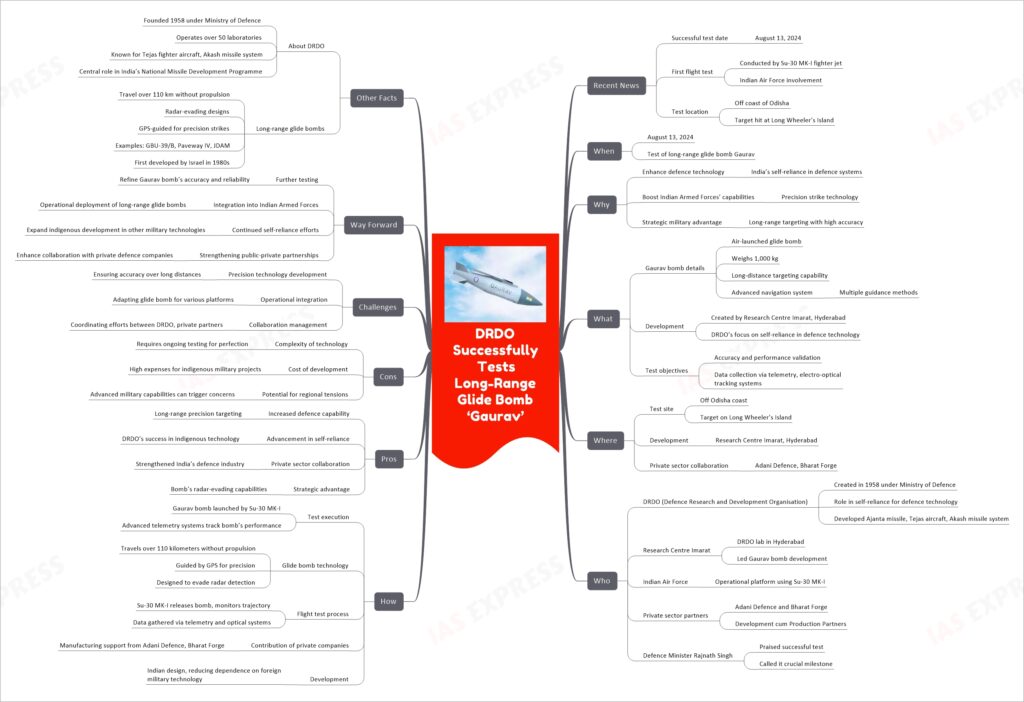
On August 13, 2024, India’s DRDO successfully tested the Gaurav long-range glide bomb using a Su-30 MK-I fighter jet. Weighing 1,000 kg, this advanced air-launched weapon is designed for precision targeting over long distances, using sophisticated navigation systems. Developed by the Research Centre Imarat in Hyderabad, this test demonstrates India’s growing self-reliance in defence technology. The project involved key private sector partners, including Adani Defence and Bharat Forge. With radar-evading capabilities, Gaurav strengthens India’s military arsenal, showcasing progress in indigenous defence innovation.
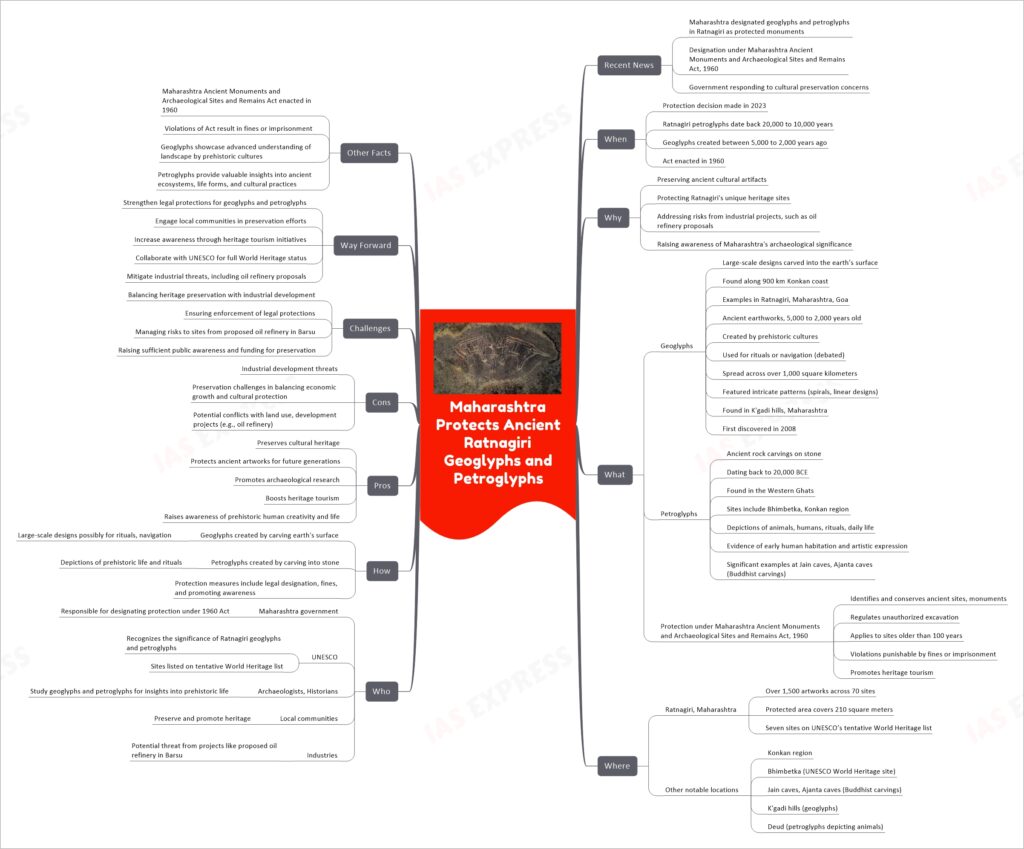
The Maharashtra government has officially protected ancient geoglyphs and petroglyphs in Ratnagiri under the Maharashtra Ancient Monuments and Archaeological Sites and Remains Act, 1960. These prehistoric artworks, including large earth designs and rock carvings, date back thousands of years and provide valuable insights into ancient ecosystems and human life. With over 1,500 artworks spread across 70 sites, some of which are on UNESCO’s tentative World Heritage list, the move aims to preserve these cultural treasures. However, proposed industrial developments, like an oil refinery in Barsu, pose significant risks to these heritage sites, prompting ongoing efforts to balance preservation with economic growth.
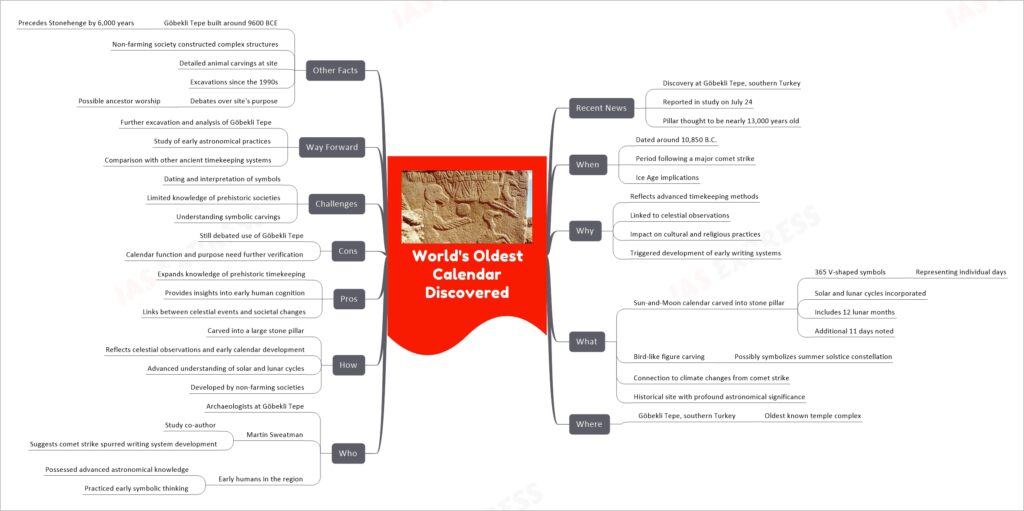
Archaeologists have discovered what may be the world’s oldest known Sun-and-Moon calendar at Göbekli Tepe, Turkey. Carved into a stone pillar and estimated to be nearly 13,000 years old, this calendar demonstrates early humans’ advanced understanding of solar and lunar cycles, including 365 symbols representing days and adjustments for lunar months. The site, which dates to 9600 BCE, features intricate carvings and offers profound insights into prehistoric timekeeping, cultural practices, and the impact of climate events like a major comet strike around 10,850 B.C. This discovery reshapes our understanding of early societies and their complex knowledge systems.
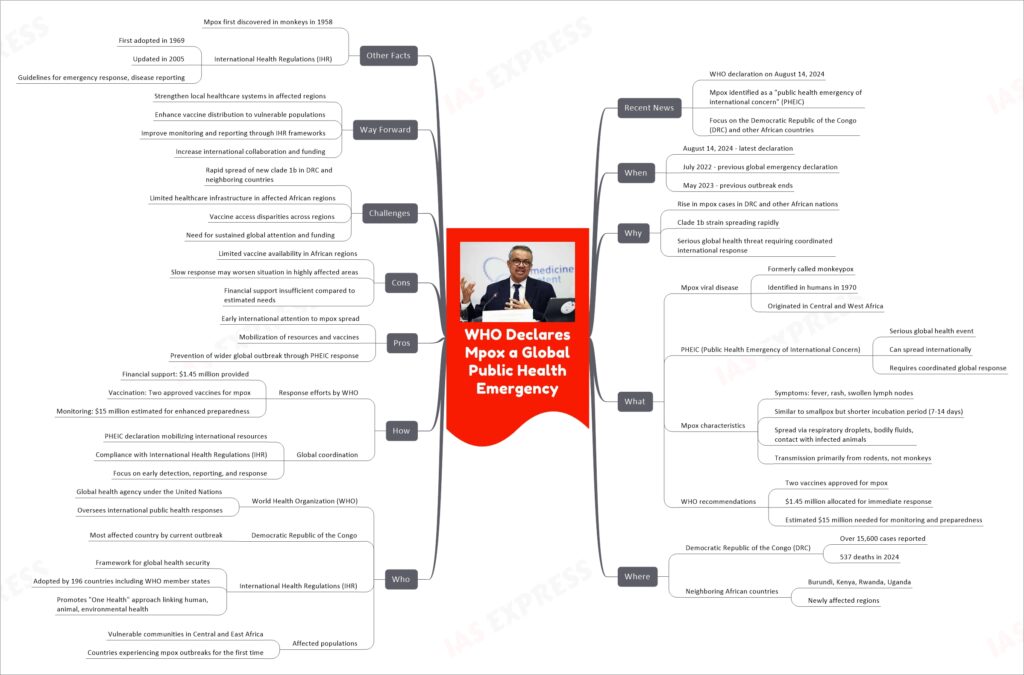
The World Health Organization (WHO) declared mpox a Public Health Emergency of International Concern (PHEIC) on August 14, 2024, due to a significant rise in cases, especially in the Democratic Republic of the Congo (DRC). Mpox, a viral disease, mainly affects Central and West Africa but is now spreading in new regions due to a new strain called clade 1b. WHO has initiated response efforts, including funding and vaccines, but challenges remain in healthcare infrastructure and global coordination. The declaration under the International Health Regulations (IHR) aims to boost international cooperation and prevent a broader outbreak.
If you like this post, please share your feedback in the comments section below so that we will upload more posts like this.
